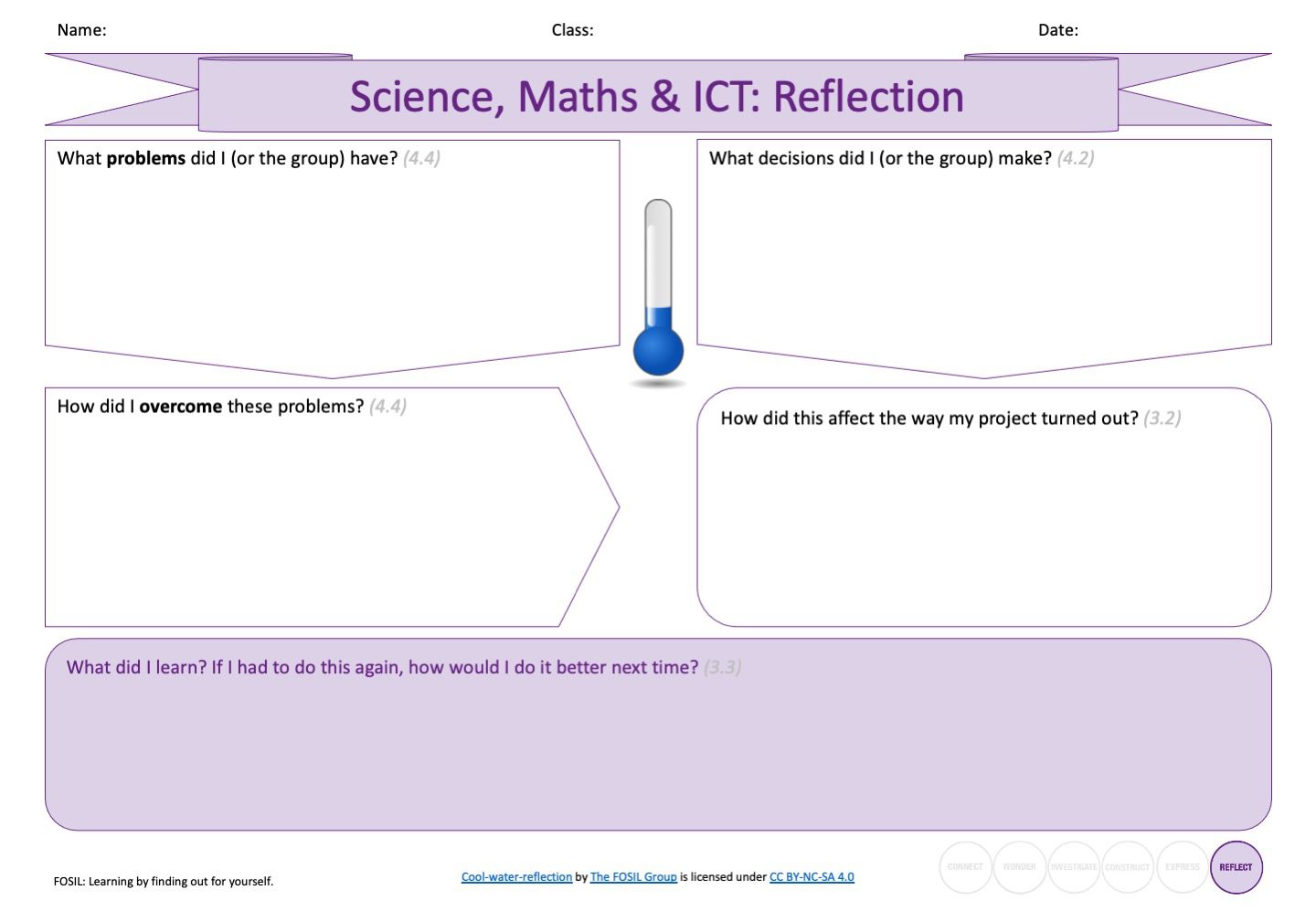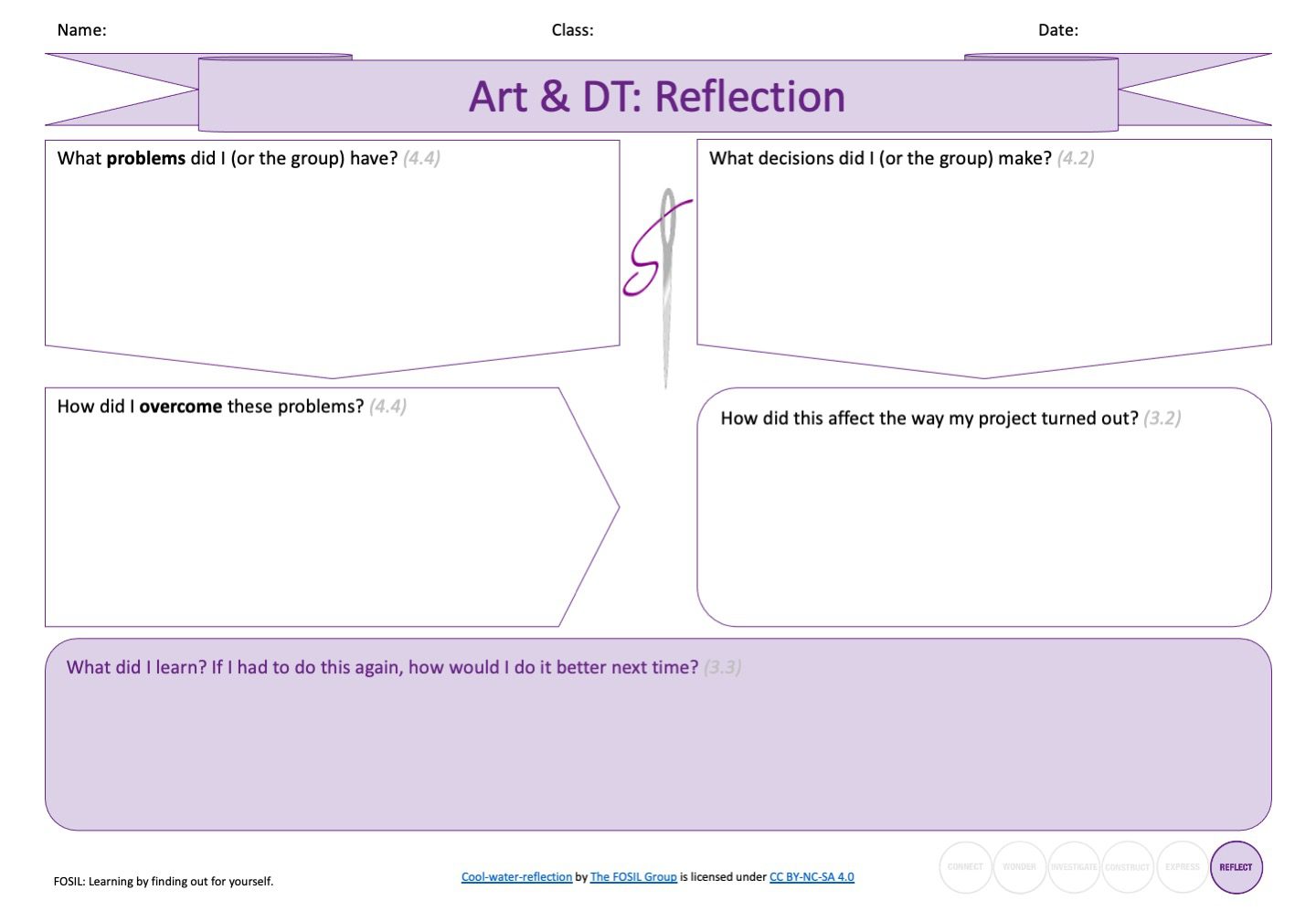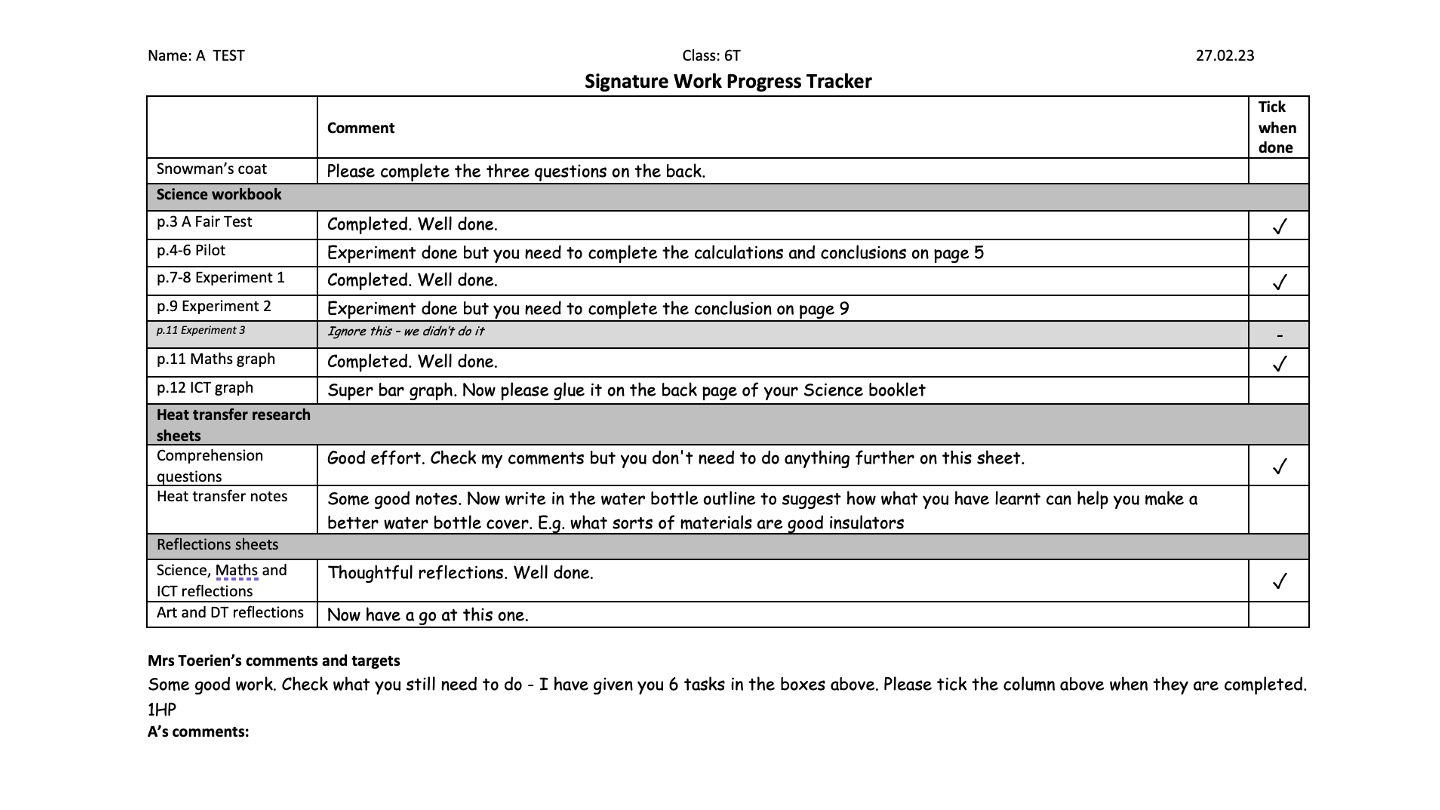Reflecting
We spent some time before half term reflecting on progress. This is another important element of the CREST Award – and it was great to be forced to make time to do this properly. Reflection can often be rushed at the end of a project, whereas here we had the opportunity to reflect at a mid-stage, both on the product and the learning. One of the English teachers commented to me how valuable it was to have spent a whole lesson reflecting on the half-term’s work, as that was not something students usually had much time to do, particularly in such a structured way.
I made a graphic organiser to encourage them to consider how they overcame problems that they came across, what decisions they had made, what they had learnt and what they would change. You can download an editable (PPT) copy here. Note that the pale grey numbers refer to CREST Award criteria.


Over half-term, I reviewed all the work they had produced and made notes (in an Excel spreadsheet) of any gaps that particular students had, or sections they needed to improve. Then I MailMerged this into a single page Word document for each student (see example below). My spreadsheet means that I have a central record of how every student is getting on, but the MailMerge meant that I was then able to give each student their printed feedback. They then spent a lesson, with guidance from me and the English teacher, reviewing their work, filling in the gaps and improving it. The teachers both commented what a valuable exercise this was, as often (particularly at this age) when students have missed something they will just need to move on with the rest of the class. One of the teachers also mentioned how doing it this way really built the students’ independence, because it allowed them to see exactly what they needed to do and to work through it by themselves. Both classes had a very productive lesson, and there was a strong sense of pride in completing this stage of their projects well. This type of marking was very time-consuming (for 44 students), but I feel it was worth it to make sure they all knew what they needed to be working on individually.
 Next week we will be moving on to designing the campaign for reducing the use of single use plastics in the school – so back to Connect!
Next week we will be moving on to designing the campaign for reducing the use of single use plastics in the school – so back to Connect!